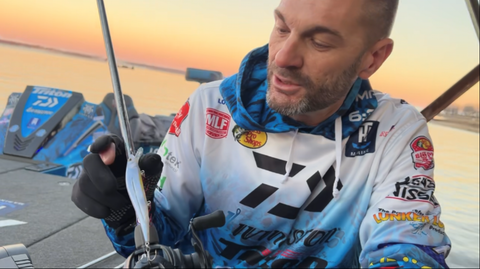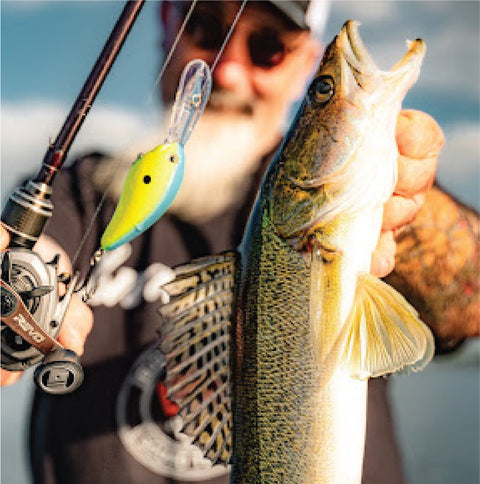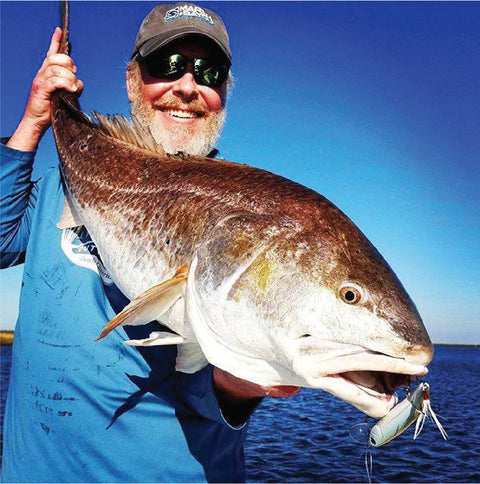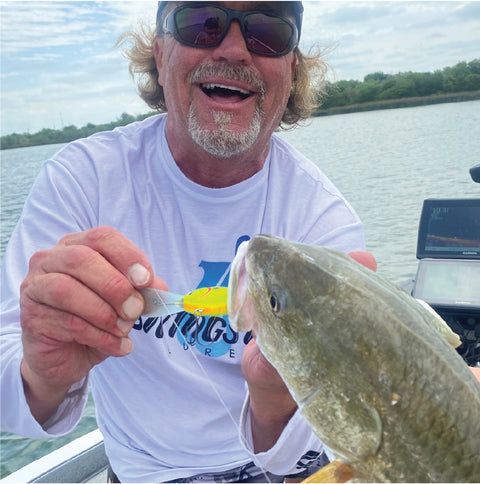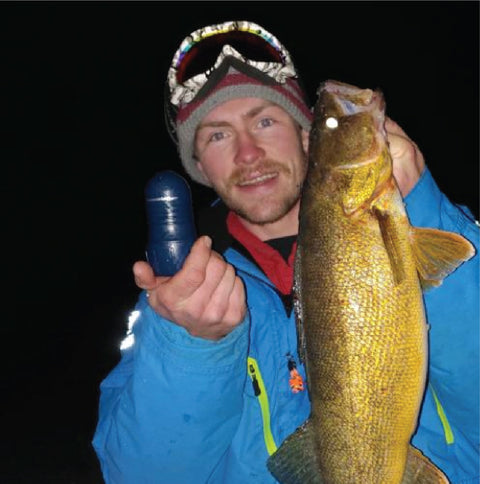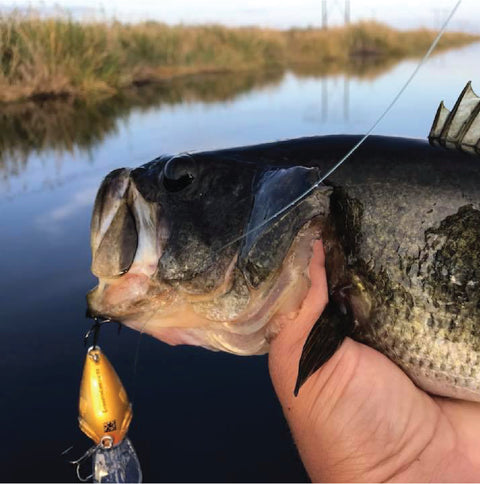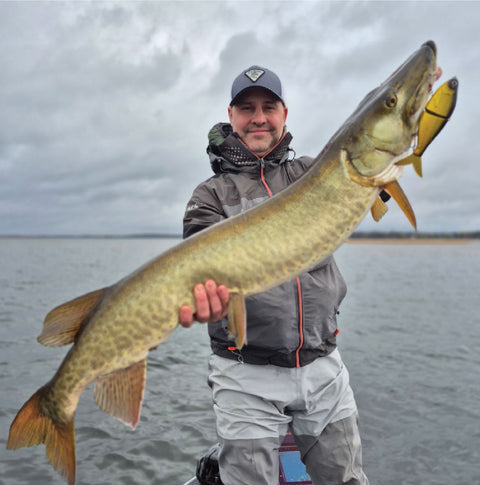Melton Hill Musky Fishing: Ultimate Guide to Melton Hill Musky Fishing

Melton Hill Reservoir, nestled in East Tennessee near Oak Ridge, is a top destination for musky anglers looking to land trophy-class fish. Known for its clear water and healthy musky population, Melton Hill is home to Tennessee’s state record musky, caught by Tennessee Musky Guide Steven Paul. With decades of experience as a third-generation musky angler and lure designer for Livingston Lures, Steven shares insights on the best lures, prime locations, and proven techniques to help you catch your dream musky in 2025. Whether you’re new to the sport or a seasoned musky hunter, this guide has everything you need to succeed on Melton Hill.
Why Melton Hill is a Must-Fish Musky Lake
Spanning over 20 miles, Melton Hill Reservoir offers varied habitat and strong currents that make it a challenging yet rewarding fishery. The Tennessee Wildlife Resources Agency stocks muskies here annually, and the fish grow fast thanks to abundant forage. Steven Paul, who holds the Tennessee state record with a 43-pound, 14-ounce musky caught in 2016, says, “Melton Hill’s muskies are special—they’re aggressive, smart, and grow big fast because of the lake’s rich food supply.” With changing currents and plenty of structure, the lake keeps anglers on their toes, making every catch hard-earned and memorable.
Top Musky Spots on Melton Hill
Melton Hill has a mix of habitats perfect for targeting muskies. Here are some of Steven’s favorite areas to focus on in 2025:
- Norris Dam Tailwaters: “No one ever fishes this far up” Steven says of the waters just a few miles below Norris Damn. This area has holes and strong currents create prime holding areas for big fish year-round. “This spot’s all about current seams where muskies like to ambush,” says Steven.
- Hope Creek: Weeds and submerged timber make it a hotspot for post-spawn muskies in May and June.
- Clark Center Park: Points and shallow flats provide great early-season casting locations.
Look for creek arms, stump fields, rock walls, and weed edges to consistently find muskies.
Understanding Musky Habitat at Melton Hill
Muskies are ambush predators that rely heavily on structure to strike efficiently. Steven points out, “They love spots where they can hide and surprise prey with minimal effort.” Here’s what to look for:
- Vegetation: Cabbage and milfoil beds are key in spring and summer. “Fish the edges where muskies lie in wait for shad and suckers,” Steven advises.
- Wood: Blowdowns, stumps, and submerged timber are especially good in the fall near creek arms.
- Rock: Riprap and rocky points hold baitfish and retain warmth, making them ideal in winter.
Be sure to factor in dam releases and current flow, as these strongly influence musky locations.
Best Lures for Melton Hill Muskies
Steven, who designs Livingston Lures, recommends these baits tailored to Melton Hill’s muskies:
-
Magnus: “Big profile and thumping action mimic the shad and skipjack muskies chase here,” Steven says. Great for casting and trolling breaklines or casting in clear water. I designed this lure on Melton Hill, and it has saved the day for me more than once after its release. Great White and Disco Shad are killers for Melton Hill musky.

-
Titan: Dive-and-rise action perfect for weed edges. “Adjustable weights let me dial depth for picky fish,” he explains. This lure was my first worldwide selling lure and was made for Melton Hill musky fishing. I needed a lure that did it all, as Melton Hill varies so much. The Titan keeps me dialed in across the entire reservoir.

-
Kraken: Large tube bait with erratic fall, ideal for pitching into stumps or laydowns. High-thump action for active fish, especially over shallow flats in summer. Melton Hill musky like deep edges in the fall, but when they’re not aggressive, you need a controlled fall. This is where I got the idea to design the Kraken and its versatile weighting system.

Water Temperature and Musky Activity
Water temperature strongly influences musky behavior. Steven notes, “Melton Hill muskies are most active between 48 and 75°F, with peak feeding around 62–68°F.” Here’s a quick guide:
- 48–53°F (Winter): Muskies hold deep near breaklines. Troll big lures like the Magnus and Squeaky Pete slowly.
- 60–75°F (Spring/Fall): Muskies move shallow and feed aggressively. Fast retrieves with the Titan, Bucktail, or Big Makk work well.
- Above 78°F (Summer): Muskies suspend or hug deep structure—target mid-depth zones with the Kraken.
Do not target Melton Hill musky above 80-degree surface temperatures for the health and safety of the fish and future populations.
Adjust your tactics based on water temperature to stay in the strike zone.

Trolling Tips for Melton Hill Muskies
Trolling helps cover water and find active fish. Steven says, “Keep your lures just above weed tops or along breaklines and add in motion with your boat to trigger more strikes.”
- Planer Boards: Livingston Lures Blade Planer Boards help spread lures wide to cover more water without spooking fish.
- Target Areas: Focus on breaklines, creek channels, and submerged humps. Repeatedly hit key humps to trigger strikes.
- Trolling Speeds:
- Colder water (48–53°F): 2–3 mph
- Warmer water (70–75°F): 3.5–5 mph
“Match your speed to baitfish activity,” Steven advises. “Try different speeds until you get a bite.”
Handling and Conservation
Despite their size, muskies need careful handling. Steven stresses, “Use a real musky net with a wide mesh, keep the fish wet and supported, and avoid touching gills or eyes.” Quick releases are essential to keep the fishery healthy. “Catch, photo, release—that’s how we keep Melton Hill’s muskies thriving.”
Pro Tips from Steven Paul
- Master Current Flow: “Dam schedules dictate current and are far more meaningful that better than weather on this unique body of water.”
- Go Big: “Melton Hill muskies prefer big baits like the Magnus or Titan—small lures won’t cut it.”
- Fish Feeding Windows: “Solar and lunar phases align with musky feeding times.”
- Vary Presentation: Change speed and depth often to find what triggers strikes.
- Gear Up: Use heavy rods, 80-lb braided line, and steel leaders.
Steven Paul is an international award-winning lure designer, Livingston Lures pro staff member, and their chief development director. Above all, Steven is a musky guide who calls Melton Hill his home waters. “It’s funny when people ask me what lure to use for catching Melton Hill musky. I always laugh a bit because there are packages with my name and face on the box… Where do people think I designed and came up with these lures? It ain’t hard to figure out what I’m using out there.”
Steven Paul Melton Hill Musky Guide
Looking for the best Melton Hill musky guide? Book your next trophy hunt with Steven Paul, Tennessee’s top-rated musky guide and holder of the state record musky caught on Melton Hill. With decades of experience and a deep understanding of Melton Hill Reservoir’s unique current, structure, and seasonal patterns, Steven offers fully guided musky fishing trips tailored for beginners and seasoned anglers alike. As Livingston Lures’ head lure designer, he’ll even put custom-designed baits in your hands—the same ones that made Melton Hill famous. Whether you want to cast, troll, or learn how to trigger strikes from pressured fish, Steven’s one-on-one coaching will dramatically improve your odds. Melton Hill musky fishing charters are available year-round. Book your trip today and chase the fish of a lifetime.


